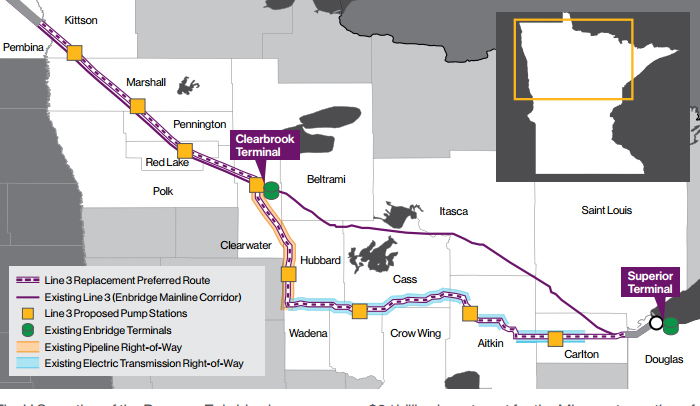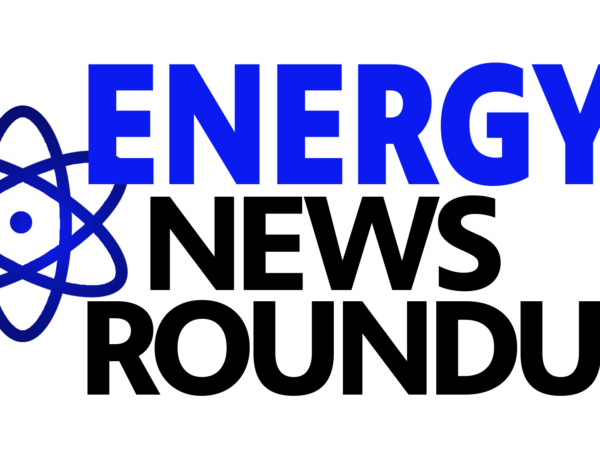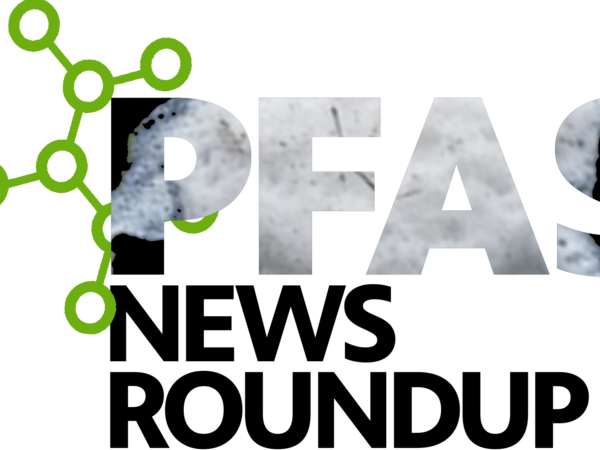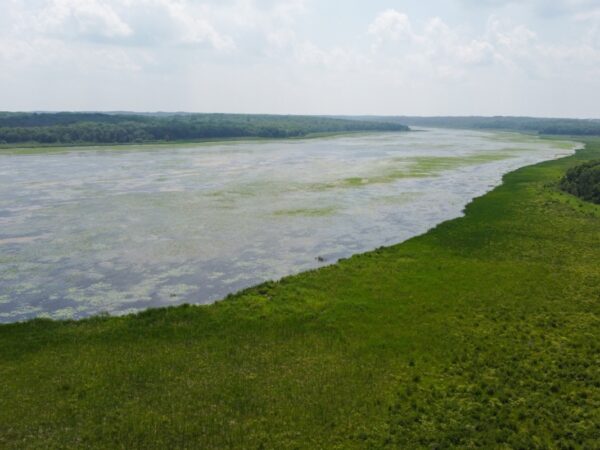
By Walker Orenstein, MinnPost, through the Institute for Nonprofit News network
Enbridge Energy has all the permits it needs to start construction on a controversial new crude oil pipeline in Minnesota, more than five years after the Canadian company first asked state regulators to approve the Line 3 project.
The milestone comes after a long and winding road through Minnesota’s environmental review process — and state courts — for Enbridge, which secured a handful of state and federal permits in recent weeks. The final permit was granted Monday by the Minnesota Pollution Control Agency, clearing the way for work on Line 3 to start across the state.
“This is the culmination of six years of evidence and science-based review of the project,” said Juli Kellner, a spokeswoman for Enbridge.
Still, hurdles remain for Enbridge, including ongoing lawsuits. Construction on the pipeline is likely to escalate protests and might swell encampments in northern Minnesota, where activists have prepared for years to fight a project they see as a serious threat to the environment and an affront to Indigenous rights.
Enbridge clears regulatory hurdles; still faces court challenges
Enbridge hopes to build the $2.6 billion Line 3 project to replace a smaller pipeline, built in the 1960s, that is corroding and considered a spill risk. If built, Enbridge’s new 36-inch pipeline would travel 337 miles across a partly new route in northern Minnesota before arriving at a terminal in Superior, Wisc. It can carry roughly 760,000 barrels of crude oil per day. The old 34-inch pipeline is operating at about half-capacity to reduce the chance of serious spills.
The pipeline project took a leap forward in February when the five-member PUC approved for the second time a critical Certificate of Need and Route Permit for Line 3. The commission had voted to issue those permits in 2018, but had to revisit them after courts ordered the PUC to revise an environmental review.

In mid-November, the MPCA granted Enbridge a key water pollution permit, known as a 401 Certification and the U.S. Army Corps of Engineers followed up last Monday by approving its own clean-water permit. The Minnesota Public Utilities Commission, a board with a Democratic majority, authorized the company to begin construction last Tuesday.
Enbridge still needed a construction stormwater permit, however, which was approved by the MPCA on Monday.
Kellner said Line 3 underwent 70 public comment meetings, court scrutiny of an environmental impact statement, four reviews by administrative law judges and multiple rounds of study by the PUC and state agencies. The company has made 320 route modifications based on outside input, she said.
There are outstanding legal challenges to Line 3, however.
One is from the state’s Department of Commerce, an agency that contends Enbridge hasn’t properly shown demand for the oil the pipeline would carry. Agency spokeswoman Mo Schriner said Commerce is still reviewing its options for the appeals process.
On Wednesday, the Red Lake Band of Chippewa and the White Earth Band of Ojibwe did ask the PUC for a temporary suspension of the Certificate of Need order until state courts rule on appeals. The PUC will take up the request Friday. If commissioners deny a stay, the tribes can ask the Minnesota Court of Appeals. The tribes and several environmental groups also filed a lawsuit to the Minnesota Court of Appeals on Monday challenging the MPCA’s 401 Certification, a major water pollution permit issued last week.

Frank Bibeau, attorney for White Earth, said the tribe is also considering federal lawsuits over treaty rights. The Line 3 route would cross land ceded by tribes on which they retain rights to hunt, fish and gather wild rice. Bibeau said he believes White Earth needs to consent to a pipeline before construction or operation in those areas.
Bibeau compared the case to one in Washington state in which federal courts ruled the state must pay to alter culverts that hamper the migration of fish in order to abide by tribal fishing rights.
President-elect Joe Biden has yet to weigh in on the Line 3 pipeline, though he has publicly opposed the Keystone XL oil pipeline. The Biden transition team did not respond to questions, and the former Vice President repeatedly declined to comment on the project to several Minnesota news outlets throughout the campaign. Several Democratic candidates did oppose Line 3, including Washington Gov. Jay Inslee, who is reported to be under consideration for jobs in the Biden administration.
Construction could bring jobs — and protests
The Line 3 project is expected to create roughly 4,200 construction jobs, about half of which will go to local workers. Enbridge signed an agreement in 2019 to use only union labor for construction of the project.

Kevin Pranis, a spokesman for the North Dakota and Minnesota chapter of the Laborers’ International Union of North America (LIUNA) said Line 3 will be the largest privately-funded construction project in state history and will create more jobs for his union than even the construction of U.S. Bank Stadium. Pranis estimated more than 1,000 LIUNA members could work on the project during roughly six to nine months of construction.
The project will also employ heavy equipment operators, welders and truck drivers. “Thousands of our friends and neighbors across Minnesota look forward to using their construction skills to protect our environment and communities by replacing an existing deteriorating pipeline,” said Joel Smith, president and business manager of the local LIUNA chapter, in a statement Monday.
Opponents of Line 3 have raised concerns that a surge in workers, particularly those from outside Minnesota, could spike COVID-19 transmission. Kellner said the company plans to regularly test workers for COVID-19 and conduct daily temperature and health screenings. Workers must wear masks and maintain “strict physical distancing,” Kellner said. Enbridge has provided a COVID-19 preparedness plan to the state, Kellner said.
Pranis said the construction industry has long been deemed essential by the state and has developed protocols for safely working. The Minnesota Department of Health did not answer questions about whether the agency has set rules for Enbridge workers or if outbreaks in construction have been an issue so far in the pandemic.
The prospect of construction is sure to spark further protests. Opponents of the pipeline have packed the state Capitol, PUC hearings and even trailed Gov. Tim Walz at times, interrupting public appearances.
In a news release, the White Earth band said there are camps of protestors preparing for construction to begin, and groups like the Giniw Collective have already used tactics such as locking themselves to Enbridge property.
Bibeau, the White Earth attorney, said the tribe has long expected protests to swell and said they could be similar to demonstrations against the Dakota Access Pipeline in 2016. Those protests gained national attention, especially after security and police used water cannons, tear gas and rubber bullets against pipeline opponents. Law enforcement said protesters set fires, threw bottles and trespassed at times.

Bibeau said White Earth is not encouraging anyone to travel north for protests, but said they can’t prevent it either. “We understand people are concerned about our resources and the other creatures of the planet up here,” he said. “We understand there’s a whole bunch of people that did occupy New York and Seattle and other places — they have maybe other agendas and goals also and whatever you’re doing can get pirated.”
(Not all tribes in the area oppose the pipeline. The Leech Lake Band of Ojibwe has supported the Line 3 project, primarily because the old, existing pipeline that will be decommissioned runs through their land and the new one will not.)
Tara Houska, an attorney and founder of the Giniw Collective, said her organization has trained hundreds of people in nonviolent resistance and other advocacy strategies to protest Line 3 and has had encampments in northern Minnesota since June of 2018. Houska said lately the group has been forced to set its own protocols for COVID-19 testing and quarantining for people joining them from outside.
That has worked, she said, but also said it’s not “prudent or wise” for thousands of protesters or pipeline workers to show up in rural Minnesota amid a pandemic that has sharply escalated outside of the Twin Cities metro area. Houska said they are calling for more help and working on ways for people to engage in protest that is “healthy and safe.”

Houska said they work to screen people to understand their intentions for getting involved to avoid having a protest be sidetracked by outsiders, and she said collective’s plans still involve people “putting their body and their freedom on the line” with actions such as chaining themselves to equipment.
So far, law enforcement have not clashed with protestors like at the Dakota Access demonstrations, though Houska said she believes Enbridge security has followed her along pipeline routes and engaged in other intimidation tactics.
Kellner, the Enbridge spokeswoman, did not respond to Houska’s allegations of being followed, but said broadly the company is “committed to ongoing engagement and dialogue” and “recognize(s) the rights of individuals and groups to express their views legally and peacefully.”
The company, Kellner said, “will not tolerate human rights abuses and will not engage or be complicit in any activity that solicits or encourages human rights abuse.”
Kellner also said that “criminal acts of sabotage and tampering, vandalism, trespassing and occupation of pipeline facilities are not peaceful, and have the potential to cause serious harm — not only to the perpetrators, but also to nearby communities, the environment, landowners and the employees who maintain these facilities.”
The PUC required Enbridge to work with a state liaison on public safety issues that arise and create a fund to reimburse local police for their work.
Political debate continues
Houska, Bibeau, and environmental advocacy nonprofits criticized Walz and his administration Monday, saying he was enabling long-term fossil fuel infrastructure amid a climate crisis and calling the environmental review process inadequate.

While the governor appeared Monday at the first meeting of a climate advisory council he created, and which opened by describing climate change an “existential threat,” Houska said Walz’s “climate legacy will be approving one of the largest tar sands infrastructure projects in North America.”
Supporters of Line 3 argue that oil would be sent to market by truck or rail if the pipeline wasn’t built, meaning the project’s climate impact is overstated. Houska said the pipeline is larger than the existing one Line 3 will replace and will carry more oil.
“There’s a lot of nice-worded laws in Minnesota statutes and some of them are about climate change and the environment,” Bibeau said. “But if you’re really worried about climate change right now and you’re watching what’s going on and you’ve been watching what’s going on then you should be concerned about a pipeline like this.”
Republicans and trade union groups, however, praised the state for signing off on Line 3. State Senate Majority Leader Paul Gazelka, R-East Gull Lake, said in a statement that he is “grateful Minnesota can now move forward with this critical project that will result in significant economic benefit for counties, small businesses, Native American communities and union members.”
Democrats who control the state House did not comment on the pipeline’s approval.
For his part, Walz told reporters Line 3 has undergone “extensive review,” and said major permits have been vetted and scrutinized by courts and state regulators. He said governors should not unilaterally act to permit or stop projects, but rely on the state’s process. “I think construction will go forward,” Walz said. “If the courts choose to issue a stay we would certainly honor that but I have not heard that at this time.”
Read more Line 3 news on Great Lakes Now:
Enbridge starts construction on Line 3 in Minnesota
Minnesota gives final green light to disputed oil pipeline
Minnesota tribes file to halt pipeline approval due to virus
Army Corps of Engineers grants final federal Line 3 permit
Great Lakes Energy News Roundup: Climate Jobs Illinois, Line 3, natural gas in Minnesota
What are Joe Biden’s views on two of the most controversial environmental projects in Minnesota?
This article, first published in MinnPost, is republished here through Great Lakes Now’s membership in the Institute for Nonprofit News, a network of more than 200 nonprofit newsrooms across the U.S., working to strengthen the sources of trusted news for thousands of diverse communities.
MinnPost is a nonprofit, nonpartisan media organization whose mission is to provide high-quality journalism for people who care about Minnesota.
Featured image: Enbridge Line 3 Pipeline Replacement Project (Image from mn.gov)




